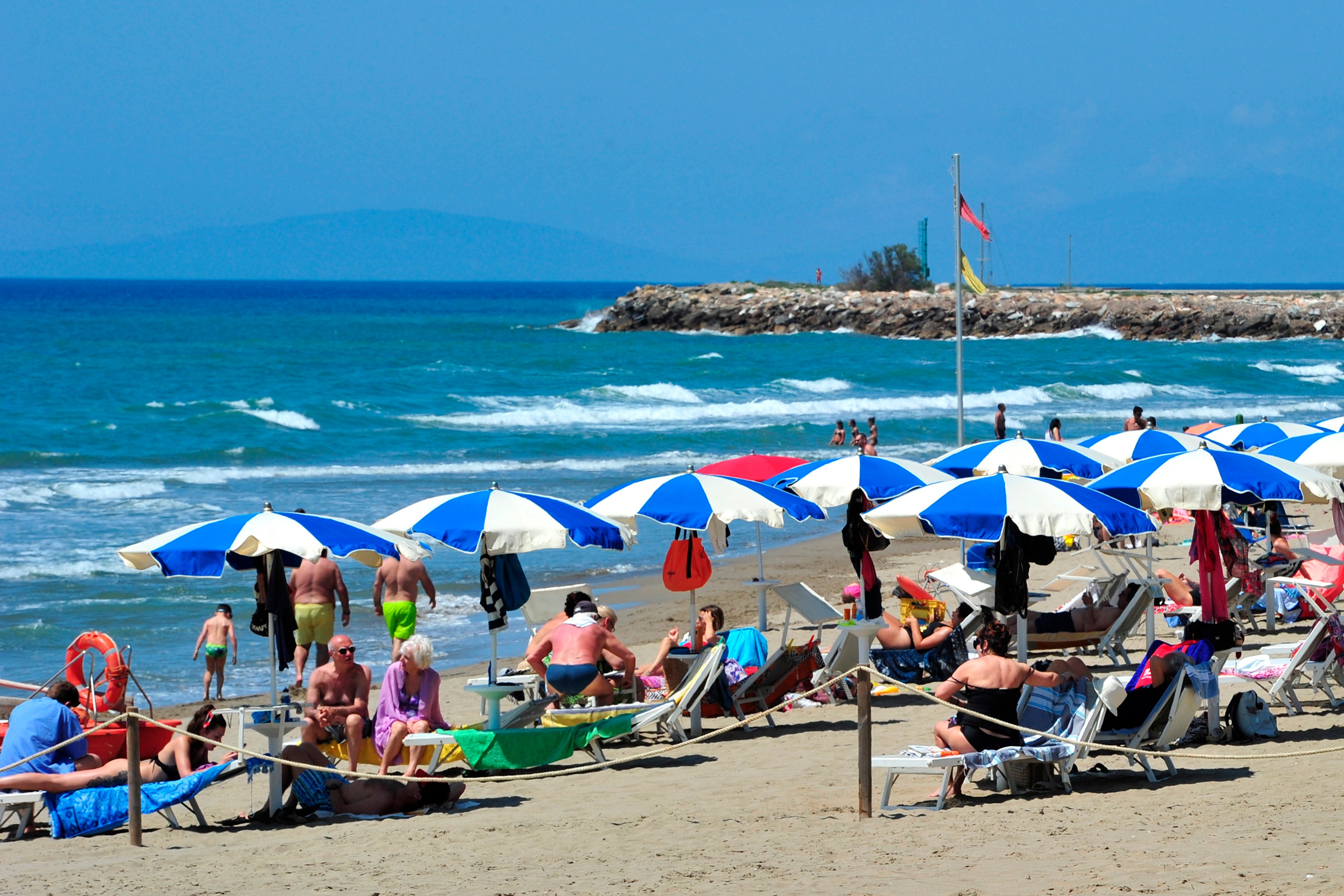Italian beach establishments close umbrellas briefly to protest long-delayed liberalization plans
Italian beach establishments mounted a symbolic two-hour strike early Friday aimed at pressuring the government not to enact a decades-old EU directive to liberalize the sector, long a symbol of Italy’s failure to reform the economy

Your support helps us to tell the story
From reproductive rights to climate change to Big Tech, The Independent is on the ground when the story is developing. Whether it's investigating the financials of Elon Musk's pro-Trump PAC or producing our latest documentary, 'The A Word', which shines a light on the American women fighting for reproductive rights, we know how important it is to parse out the facts from the messaging.
At such a critical moment in US history, we need reporters on the ground. Your donation allows us to keep sending journalists to speak to both sides of the story.
The Independent is trusted by Americans across the entire political spectrum. And unlike many other quality news outlets, we choose not to lock Americans out of our reporting and analysis with paywalls. We believe quality journalism should be available to everyone, paid for by those who can afford it.
Your support makes all the difference.Italian beach establishments mounted a symbolic two-hour strike early Friday aimed at pressuring the government not to enact a decades-old EU directive to allow more competition in the sector, long a symbol of Italy’s failure to reform the economy.
Italy’s 6,500 beach concessions generate some 1.4 billion euros ($1.5 billion) in annual revenues, paying just 120 million in licensing fees to operate their business along Italy's public beaches, according to government auditors.
The beach concessions, which usually include a bar or restaurant and changing rooms along with umbrellas and lounge chairs, are often handed down from generation to generation. Owners complain they stand to lose their investments through a bidding process, while rivals complain they are blocked from entering the lucrative sector.
Maurizio Pasqualoni is the third generation in his family to run the “La Conghiglia” establishment in Ostia, near Rome.
“We have no certainty of the future,’’ Pasqualoni said. “Past governments have bounced back this situation and now, unfortunately, we can’t put it off any longer. When the season is over, we don’t know what to do.”
The sector was liberalized under an EU directive in 2006, but Italian governments have so far avoided enacting it. A court ruling has extended the licenses through the end of this year, and Premier Giorgia Meloni's government is under pressure to resolve the issue.